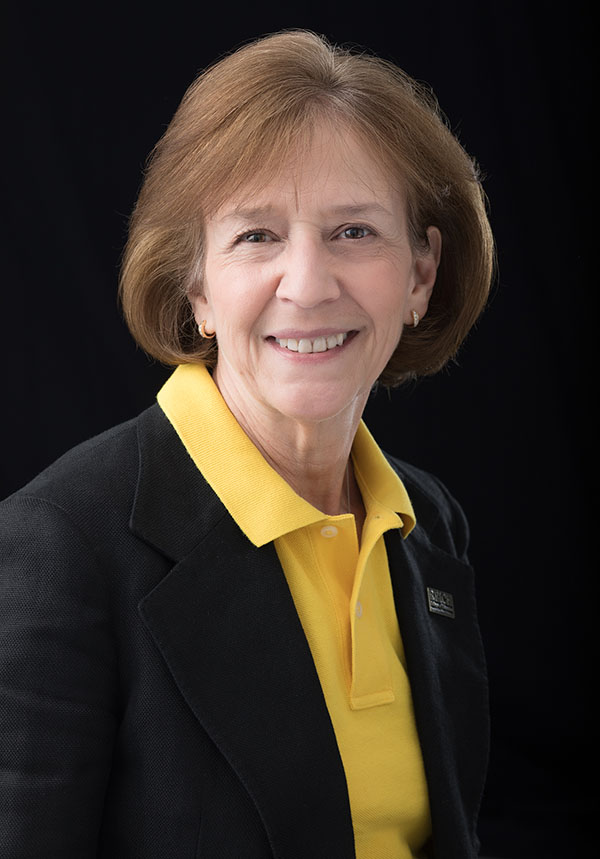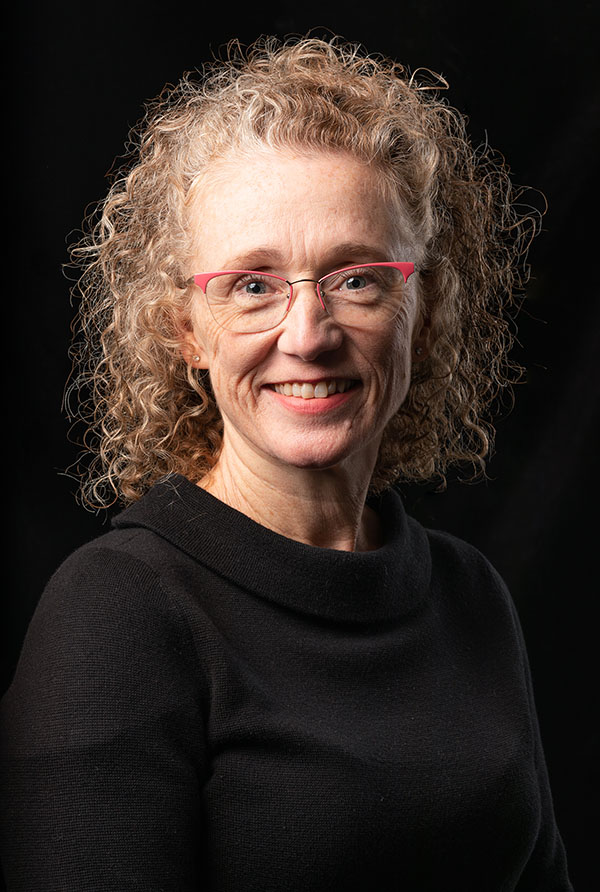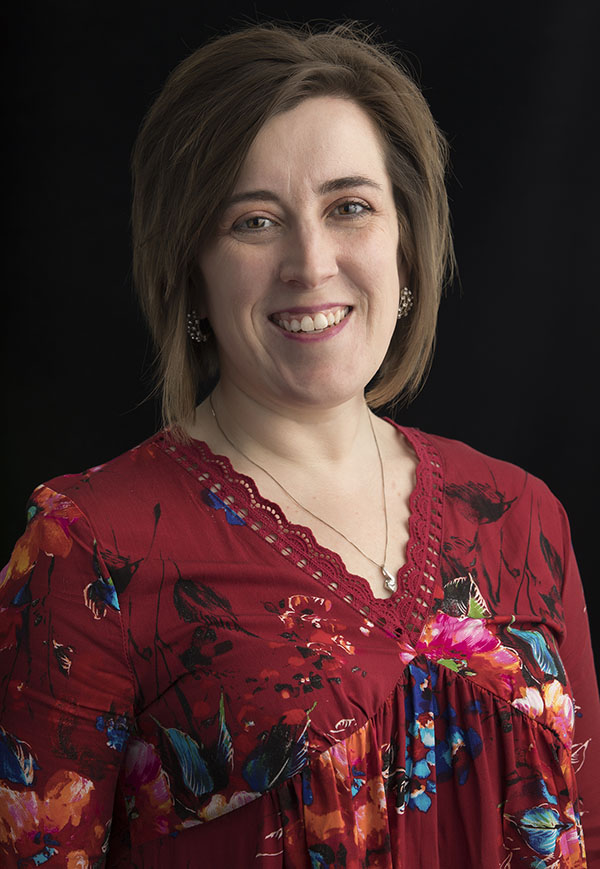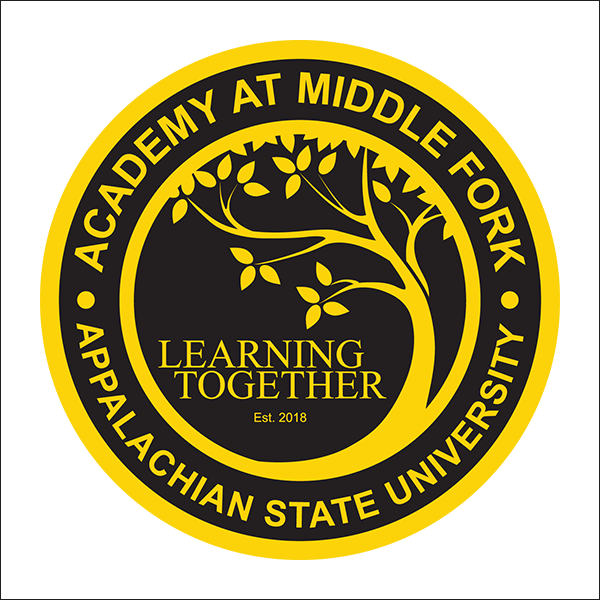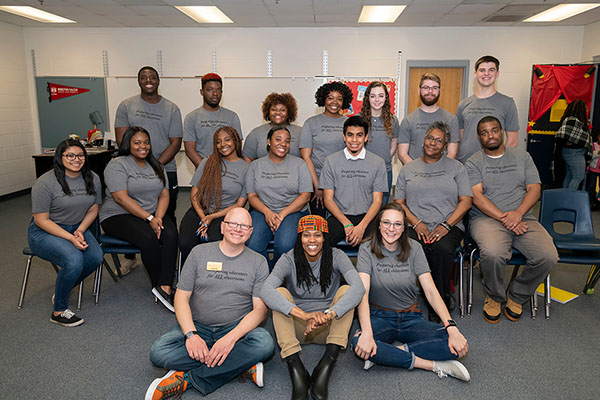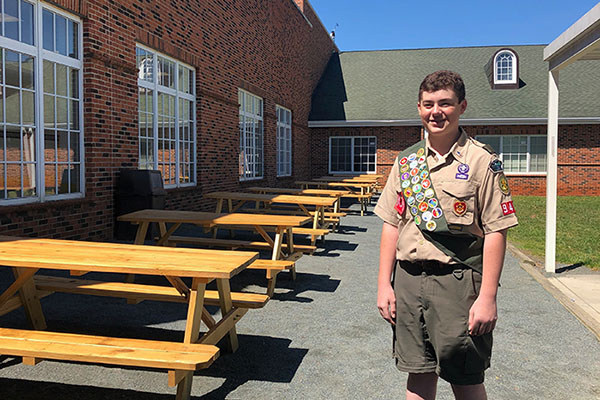BOONE, N.C. — Data on first-year student achievement released by the North Carolina Department of Public Instruction (NC DPI) indicate significant progress for the Appalachian State University Academy at Middle Fork, a University of North Carolina System laboratory school in Walkertown.
Overall, the academy is meeting performance expectations, and teacher retention is notably higher — turnover has dropped 5 percentage points from last year and nearly 11 from the year prior.
“This is exceptional growth in only one year. Science, math and reading scores have improved dramatically. This impressive success is visible beyond the numbers — it is evident in the enthusiasm of the students, the passion of the teachers and the support from the administrators.”
Chancellor Sheri Everts
The academy’s performance grade score is 40, up from last year’s 30, having increased its growth 37.1% in one year. Growth is measured by a statistical model that compares each student’s predicted test score, based on past performance, against his or her actual result.
“Having a baseline from year one data to measure needs will allow us to build upon the strengths of our professional educators working with and within our beloved academy.”
Tasha Hall-Powell ’01 ’09, principal of the Appalachian State University Academy at Middle Fork
Appalachian Chancellor Sheri Everts said, “This is exceptional growth in only one year. Science, math and reading scores have improved dramatically. This impressive success is visible beyond the numbers — it is evident in the enthusiasm of the students, the passion of the teachers and the support from the administrators. I am pleased to see the data reflect the growth and achievement we’ve continually witnessed in these mini-Mountaineers.”
“Having a baseline from year one data to measure needs will allow us to build upon the strengths of our professional educators working with and within our beloved academy.”
Tasha Hall-Powell ’01 ’09, principal of the Appalachian State University Academy at Middle Fork
The academy’s principal, Tasha Hall-Powell ’01 ’09, said these figures are informative. “Having a baseline from year one data to measure needs will allow us to build upon the strengths of our professional educators working with and within our beloved academy,” she said.
The academy, which serves students in kindergarten through fifth grade, opened in fall 2018 as a collaboration between Appalachian’s Reich College of Education (RCOE) and Winston-Salem/Forsyth County Schools.
Of the newly released NC DPI data on the academy, RCOE Dean Melba Spooner said, “These achievements are impressive and important, and the intersection of curriculum and environment is critical. Research shows that having realistic, flexible expectations leads to growth. We are working to create a culture of success and build intrinsic motivation for our learners.”
According to NC DPI, school grades are based mostly on overall proficiency rates on the state’s standardized end-of-grade tests, and to a lesser extent, the growth students make during the year, irrespective of performance level.
The North Carolina End-of-Grade Tests are designed to measure student performance on the goals, objectives and grade level competencies specified in the North Carolina Standard Course of Study.
What makes for progress? Academy administrators weigh in.
Dr. Melba Spooner
Dean, Reich College of Education
“There is a strong connection between the environment and the learning that takes place. The implementation of a literacy workshop approach to teaching and learning for all students; a balanced curriculum that is inclusive, integrated and interdisciplinary; and intentional professional development for teachers and teacher assistants has been integral to the incremental growth and learning process. These strategies coupled with the core commitments of the academy have supported and fostered effort and productivity for our learners and staff. The culture of relevance through curriculum, activities and behaviors has purposefully contributed to academic growth.
“Along with the curriculum we teach, there is a focus on intentionally building a place where learners can thrive. By doing this, we are building the intrinsic motivation for people to embrace their learning and understanding of the world. Research tells us when we have realistic, flexible and accurate expectations for learners, then we set them on the path for success. We are building relationships and partnerships where students can learn. This is the foundation for growth.”
Dr. Robin Groce
Assistant dean, Appalachian State University Academy at Middle Fork, Reich College of Education
“Thank you to academy teachers, staff, faculty, administrators, students and parents for honoring our commitment of ‘learning together’ with the goal of increasing student achievement for the students at the academy.
“The hard work and intentionality with regard to addressing the needs of the whole child are evident as we have observed not only academic growth but also social and emotional growth as well.”
Tasha Hall-Powell ’01 ’09
Principal, Appalachian State University Academy at Middle Fork
“It is with great appreciation that I extend a heartfelt thank you to all of the hard work and dedication of our academy teachers, staff, administration and professors, and, of course, to our students and parents for believing in the mission and commitments of our academy. Our commitments run deep as we focus on keeping our scholars at the center of the work we share within our collaborative community.
“A special thank you to Chancellor Everts, Dean Spooner and Assistant Dean Groce for the extensive time and effort spent on ensuring that we have a unique environment in which to grow and learn together. As administrators, we will continue to focus our efforts on targeted support for teachers, students and families to boost academics, improve social–emotional well-being, and promote teacher and student leadership. Having a baseline from year one data to measure needs will allow us to build upon the strengths of our professional educators working with and within our beloved academy going forward in year two.”
Dr. Amie Snow ’06 ’04
Director of curriculum and instruction, Appalachian State University Academy at Middle Fork
“Our academic growth this year is strongly connected to the work we did to build a school culture where teachers feel empowered and students feel valued. We focused our attention on developing and implementing a strong curriculum geared to the needs of our students.
“Our staff embraced a new mindset focused on developing the whole child academically and socially, and our results show our success. As we begin year two, we plan to target our areas of growth and provide focused attention on individual student needs.”
What do you think?
Share your feedback on this story.
Appalachian State University Academy at Middle Fork provides a balanced education for children, teachers, principals, and families through the implementation of research-based practices, state of the art literacy instruction, and exemplary classroom instruction and administration.
Aug. 20, 2019
A new program is helping future educators at two North Carolina universities look at classrooms in a different way — with the goal of creating an environment in which all students thrive.
April 26, 2019
Appalachian’s Academy at Middle Fork received an outdoor learning space and campus beautification as part of a youth’s path to achieving his Eagle Scout rank.
Sept. 21, 2018
The Appalachian Academy at Middle Fork will be a living laboratory of educational research, collaboration, outreach and impact that will be life-changing for more than 300 K–5 students.
About the Academy at Middle Fork
The Appalachian State University Academy at Middle Fork, located in Walkertown, North Carolina, serves approximately 300 K–5 students. The academy provides a balanced education through the implementation of research-based practices, state-of-the-art literacy instruction, and exemplary classroom instruction and administration. Learn more at https://middlefork.appstate.edu.
About the Reich College of Education
Appalachian State University offers one of the largest undergraduate teacher preparation programs in North Carolina, graduating about 500 teachers a year. The Reich College of Education enrolls more than 2,000 students in its bachelor’s, master’s, education specialist and doctoral degree programs, with offerings that span multiple fields — from teacher preparation, counseling, and therapy, to higher education, school and student affairs administration, library science, educational leadership and more. With over 10,000 alumni employed in North Carolina public schools, there is at least one Reich College graduate in every county in the state. Learn more at https://rcoe.appstate.edu.
About Appalachian State University
As a premier public institution, Appalachian State University prepares students to lead purposeful lives. App State is one of 17 campuses in the University of North Carolina System, with a national reputation for innovative teaching and opening access to a high-quality, cost-effective education. The university enrolls more than 21,000 students, has a low student-to-faculty ratio and offers more than 150 undergraduate and 80 graduate majors at its Boone and Hickory campuses and through App State Online. Learn more at https://www.appstate.edu.

